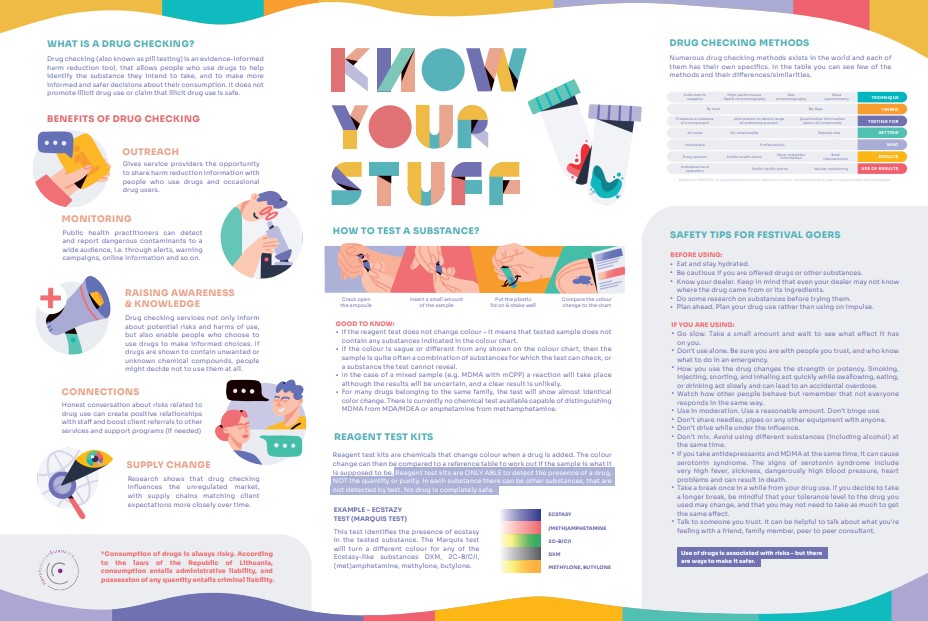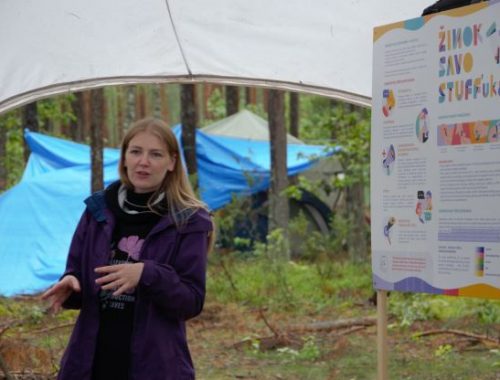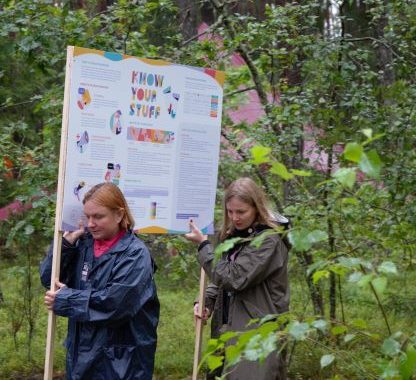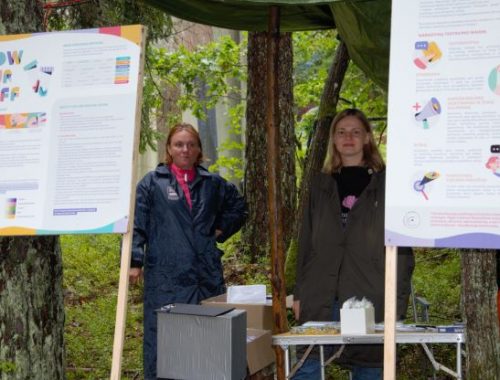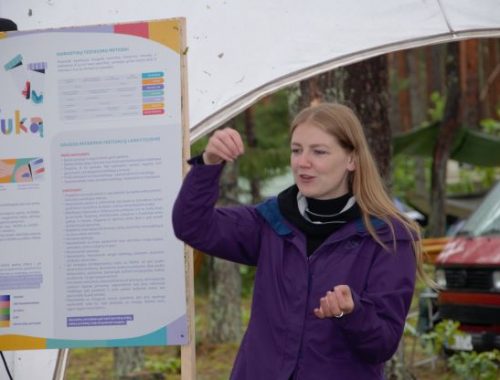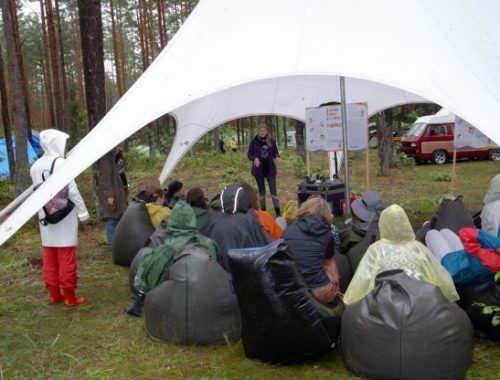People by their nature are inclined to experiment, to try new things, approaches, feelings, new states of being and mind. No wonder that one of the “tools” used for this purpose is different substances. More new psychoactive substances appear annually.
„As EHRA researches conducted in EECA countries show, the increasing use of NPS has led to new threats for health of people who use drugs – including overdoses, psychotic reactions, high HIV risks due to multiple injections and increased number of sexual contacts. However, in many countries service providers such as harm reduction, drug treatment programs and ambulance services are not ready or are not well equipped with information (and tools) on how to provide people who use NPS with quality support and counselling”, – stresses EHRA Senior Program Officer Eliza Kurcevič.
The third time EHRA team has joined music festival Yaga in Lithuania with harm reduction activities that took place on 5-9 of August. Previous experience at the festival has shown that participants are very much interested in getting the science based, understandable information on how to protect themselves and others in different situations related to consumption. There are some key, golden rules:
– know what substance you use.
– know the health risks and consequences related to the use of that substance
–know how to respond to the overdoses or how to make human life safer in the event of an overdose
This year EHRA team concentrated on the first listed issue and prepared information campaign “Know Your Stuff”.
It included several activities. Firstly, workshop called “Know Your Stuff- Drug Checking Works”, which was led by Eliza Kurcevič. Discussion attracted festival participants and they get involved into interactive discussion about risks and harm reduction approaches to different psychoactive substances. Participants discussed what is drug checking, what are the benefits of it.
Drug checking (also known as pill testing) is an evidence-informed harm reduction tool, that allows people who use drugs to help identify the substance they intend to take, and to make more informed and safer decisions about their consumption. It does not promote illicit drug use or claim that illicit drug use is safe.
BENEFITS OF DRUG CHECKING
- Gives service providers the opportunity to share harm reduction information with people who use drugs and occasional drug users.
- Public health practitioners can detect and report dangerous contaminants to a wide audience, i.e. through alerts, warning campaigns, online information and so on.
- RAISING AWARENESS AND KNOWLEDGE.Drug checking services not only inform about potential risks and harms of use, but also enable people who choose to use drugs to make informed choices. If drugs are shown to contain unwanted or unknown chemical compounds, people might decide not to use them at all.
- Honest conversation about risks related to drug use can create positive relationships with staff and boost client referrals to other services and support programs (if needed)
- SUPPLY CHANGE.Research shows that drug checking influences the unregulated market, with supply chains matching client expectations more closely over time.
In addition to that EHRA team has distributed reagent tests for those who wanted to check psychoactive substances, talked to all interested about different approaches of harm reduction and pointing out safety tips for festival goers.
SAFETY TIPS FOR FESTIVAL GOERS
Use of drugs is associated with risks – but there are ways to make it safer.
Before using:
- Eat and stay hydrated.
- Be cautious if you are offered drugs or other substances.
- Know your dealer. Keep in mind that even your dealer may not know where the drug came from or its ingredients.
- Do some research on substances before trying them.
- Plan ahead. Plan your drug use rather than using on impulse.
If you are using:
- Go slow. Take a small amount and wait to see what effect it has on you.
- Don’t use alone. Be sure you are with people you trust, and who know what to do in an emergency.
- How you use the drug changes the strength or potency. Smoking, injecting, snorting, and inhaling act quickly while swallowing, eating, or drinking act slowly and can lead to an accidental overdose.
- Watch how other people behave but remember that not everyone responds in the same way.
- Use in moderation. Use a reasonable amount. Don’t binge use.
- Don’t share needles, pipes or any other equipment with anyone.
- Don’t drive while under the influence.
- Don’t mix. Avoid using different substances (including alcohol) at the same time.
- If you take antidepressants and MDMA at the same time, it can cause serotonin syndrome. The signs of serotonin syndrome include very high fever, sickness, dangerously high blood pressure, heart problems and can result in death.
- Take a break once in a while from your drug use. If you decide to take a longer break, be mindful that your tolerance level to the drug you used may change, and that you may not need to take as much to get the same effect.
- Talk to someone you trust. It can be helpful to talk about what you’re feeling with a friend, family member, peer to peer consultant.
*Consumption of drugs is always risky. According to the laws of the Republic of Lithuania, consumption entails administrative liability, and possession of any quantity entails criminal liability

